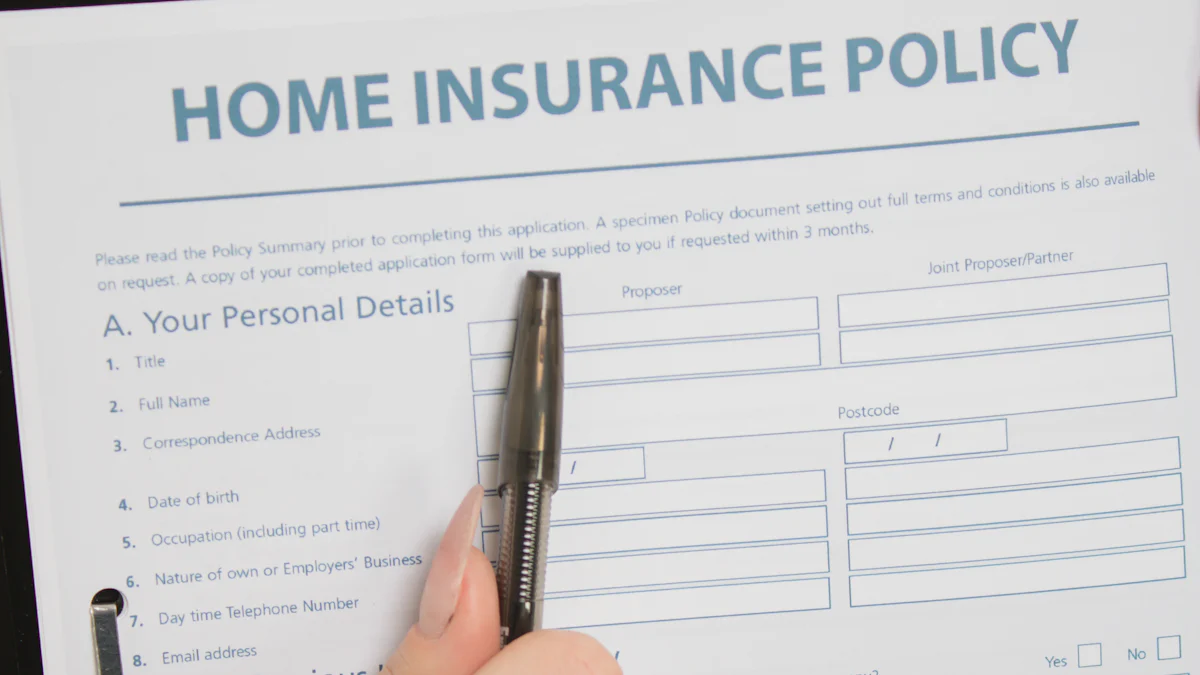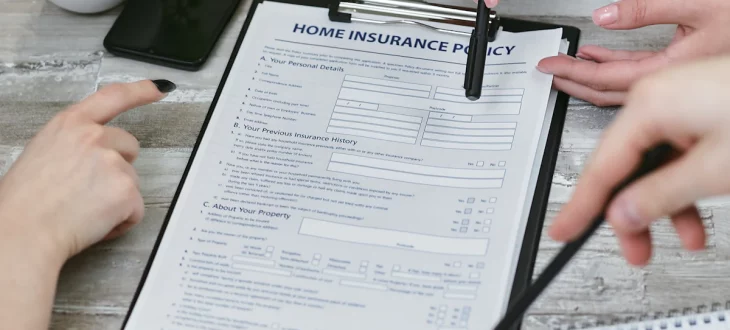Being dropped by your insurance company can feel overwhelming, but quick action is essential. Start by reviewing your insurer’s communication to understand the reason for the insurance company drop. Avoid gaps in coverage to protect yourself from financial risks. For example, if your vehicle is totaled and the insurance payout is less than the loan balance, you could face significant debt. Acting swiftly ensures you maintain continuous protection and avoid unnecessary legal or financial consequences.
Key Takeaways
- Understand the reasons behind your insurance cancellation to address issues and prevent future occurrences.
- Act quickly to secure new coverage by comparing quotes and gathering necessary documentation to avoid gaps in protection.
- Maintain a clean record and communicate openly with your insurer to foster a strong relationship and reduce the risk of future policy drops.
Understand the Reasons Behind the Insurance Company Drop
Understanding why your insurance company dropped your policy is the first step toward resolving the issue and securing new coverage. This section will guide you through common reasons for cancellations, how to review insurer communication, and steps to clarify the situation.
Common Reasons for Policy Cancellation
Insurance companies cancel policies for several reasons. Non-payment of premiums is one of the most frequent causes. Missing even a single payment can lead to cancellation. A high number of claims or risky behavior, such as multiple traffic violations, may also result in a policy termination. Additionally, providing inaccurate information during the application process can lead to cancellation if the insurer discovers discrepancies.
If your insurer considers you a high-risk customer, they may decide not to renew your policy. This often happens after repeated claims or significant changes in your circumstances, such as moving to a high-crime area.
How to Review Communication from Your Insurer
Insurers typically notify you of a policy cancellation through specific methods. These include:
- Written notices sent via mail or email.
- Phone calls to confirm receipt of the cancellation notice.
- Online account updates or alerts.
The Federal Trade Commission’s (FTC) ‘Click-to-Cancel’ rule ensures transparency in these processes. This rule allows you to cancel or review policies without navigating complex workflows. To avoid missing important updates, regularly check your email, voicemail, and online insurance account. Clear communication from the start of your policy helps prevent misunderstandings and cancellations.
Steps to Clarify the Reason with Your Insurance Provider
If the reason for your policy cancellation is unclear, contact your insurance provider immediately. Request a detailed explanation of the decision. Ask for specific examples, such as missed payments or claims history, that contributed to the cancellation. This information will help you address the issue and avoid similar problems in the future. Building a strong relationship with your insurer fosters trust and encourages open communication, reducing the likelihood of future cancellations.
Explore New Insurance Options
Compare Quotes from Multiple Providers
When searching for new coverage, comparing quotes from multiple insurance providers is essential. Each company evaluates risk differently, which means premiums and coverage options can vary significantly. Use online comparison tools to gather quotes quickly. These platforms allow you to input your details once and receive multiple offers, saving time and effort. Focus on policies that align with your needs and budget. Pay attention to coverage limits, deductibles, and exclusions to ensure you make an informed decision. By comparing options, you increase your chances of finding a policy that fits your circumstances after an insurance company drop.
Research High-Risk Insurance Pools
If traditional insurers decline your application, high-risk insurance pools may provide a solution. These pools cater to individuals considered high-risk due to factors like claims history or preexisting conditions.
However, these pools often come with drawbacks.
- Many charge higher premiums, making them less affordable.
- Some have high deductibles, which can increase out-of-pocket costs.
- Enrollment is sometimes limited, as seen in past programs where only a fraction of eligible individuals participated.
Despite these challenges, high-risk pools can provide essential coverage when other options are unavailable.
Work with an Independent Insurance Agent or Broker
Independent insurance agents or brokers can simplify the process of finding new coverage. They collaborate with multiple insurance companies, giving you access to a broader range of options. These professionals act as advocates, ensuring you find alternatives quickly if one insurer drops your policy. Their expertise extends to lesser-known providers, which may offer competitive rates or specialized coverage. By working with an independent agent, you gain personalized guidance and increase your chances of securing a policy that meets your needs efficiently.
Secure Coverage Quickly to Avoid Gaps

Gather All Necessary Documentation
Before applying for new insurance, collect all relevant documents. These include your previous policy details, claims history, and proof of payments. If your policy was canceled due to non-payment, provide evidence of financial stability, such as recent pay stubs or bank statements. Insurers may also request a copy of your driving record or property inspection reports. Having these documents ready speeds up the application process and demonstrates your preparedness to potential providers. Organizing your paperwork ensures you avoid delays when securing coverage after an insurance company drop.
Choose Policies That Meet Immediate Needs
Focus on policies that address your current situation. For example, if you need auto insurance, prioritize liability coverage to meet legal requirements. If you own a home, ensure your policy protects against common risks like fire or theft. Avoid overextending your budget by selecting only essential coverage. Once your immediate needs are met, you can explore additional options later. Choosing the right policy now minimizes financial exposure and keeps you compliant with state or lender requirements.
Ensure New Coverage Starts Before the Old Policy Ends
Timing is critical when switching insurance providers. Confirm the start date of your new policy aligns with the end date of your previous one. Even a single day without coverage can leave you vulnerable to significant risks. Notify your new insurer about your situation and request expedited processing if necessary. Many companies offer same-day coverage for urgent cases. By ensuring continuous protection, you avoid legal penalties and maintain peace of mind during the transition.
Prevent Future Insurance Company Drops
Maintain a Clean Record (Driving, Claims, etc.)
Maintaining a clean record is one of the most effective ways to prevent future policy cancellations. Insurance companies assess your risk based on your driving history, claims frequency, and overall behavior. To keep your record clean:
- Avoid traffic violations by following road safety rules.
- Limit claims to genuine emergencies to demonstrate responsible usage of your policy.
- Regularly review your policy terms to ensure compliance with your insurer’s expectations.
Proactively managing risks, such as installing safety features in your car or home, can also reduce the likelihood of claims. These steps show insurers that you are a low-risk customer, which strengthens your relationship with them.
Pay Premiums on Time
Timely premium payments are crucial to maintaining your insurance coverage. Missing payments is one of the most common reasons for an insurance company drop. Set up automatic payments or reminders to ensure you never miss a due date. If you face financial difficulties, contact your insurer immediately to discuss flexible payment options. Many companies offer solutions to help you stay on track without risking cancellation.
Regularly Review and Update Your Policy
Reviewing your insurance policy at least once a year ensures it remains relevant to your needs. Major life changes, such as moving, purchasing a new vehicle, or renovating your home, may require updates to your coverage. Regular reviews help you identify gaps or overlaps in your policy, ensuring you remain adequately protected. This proactive approach also demonstrates to your insurer that you are committed to maintaining a responsible and accurate policy.
Communicate Changes in Circumstances with Your Provider
Clear communication with your insurance provider is essential to avoid misunderstandings or cancellations. Inform your insurer promptly about significant changes, such as a new address, marital status, or job. These updates help your provider adjust your policy to reflect your current situation. Open communication fosters trust and ensures your coverage aligns with your needs, reducing the risk of future cancellations.
Taking the right steps after being dropped by your insurer ensures you stay protected. First, understand why your policy was canceled. Then, secure new coverage quickly. To maintain a strong relationship with your insurer:
- Regularly review your coverage.
- Communicate openly with your provider.
- Invest in loss prevention.
- Bundle policies for discounts.
Proactive measures like these help you avoid future issues and keep your coverage intact.
FAQ
What should you do if you cannot afford new insurance premiums?
Tip: Contact insurers offering flexible payment plans. Explore state-sponsored high-risk pools or work with an independent agent to find affordable options tailored to your financial situation.
Can you appeal an insurance company’s decision to drop your policy?
Yes, you can appeal. Contact your insurer, provide supporting documents, and request a review. However, success depends on the reason for cancellation and your insurer’s policies.
How long does it take to secure new insurance coverage?
Most insurers offer same-day coverage. Prepare your documents in advance to expedite the process. Independent agents can also help you find quick solutions.
